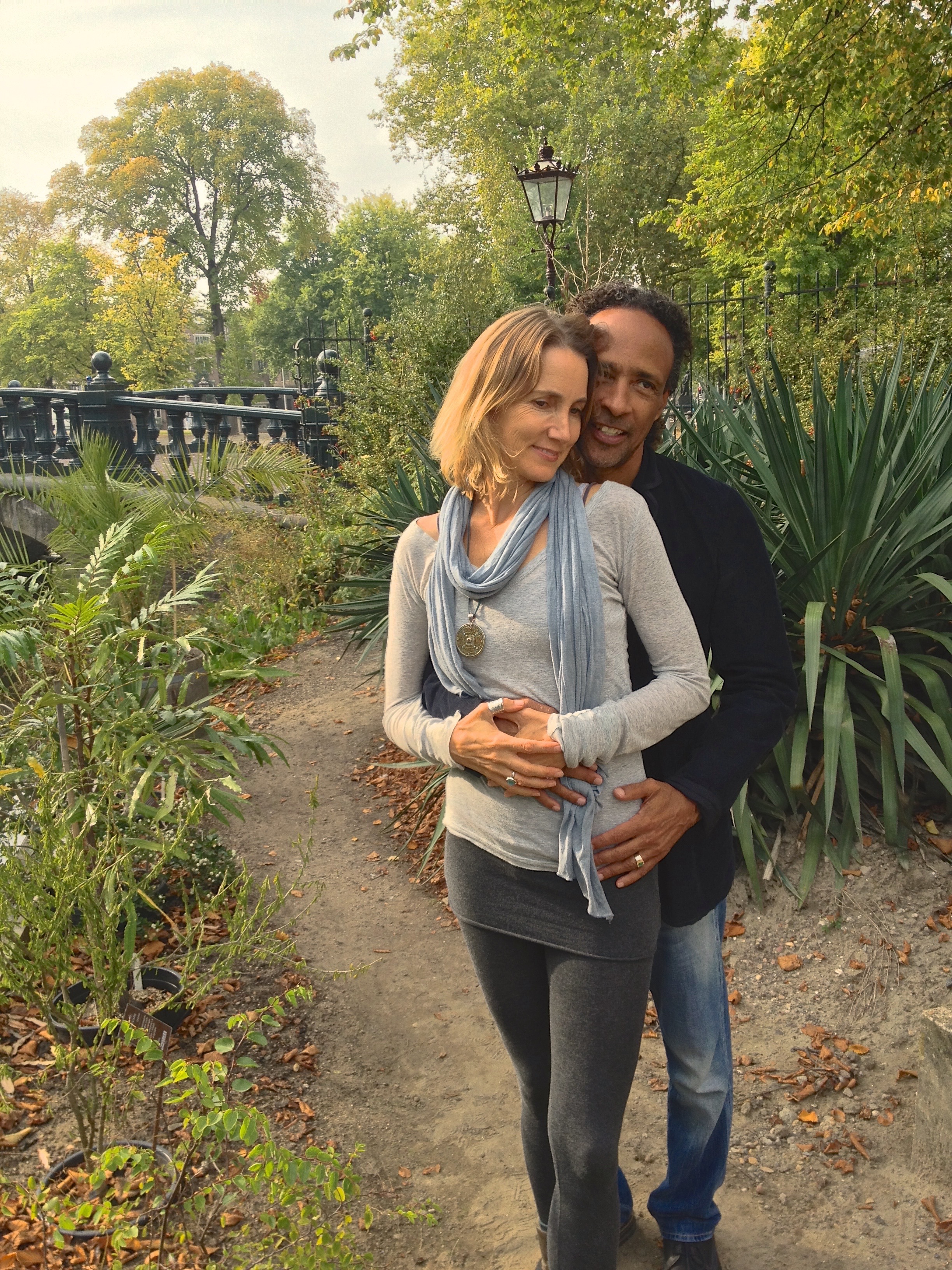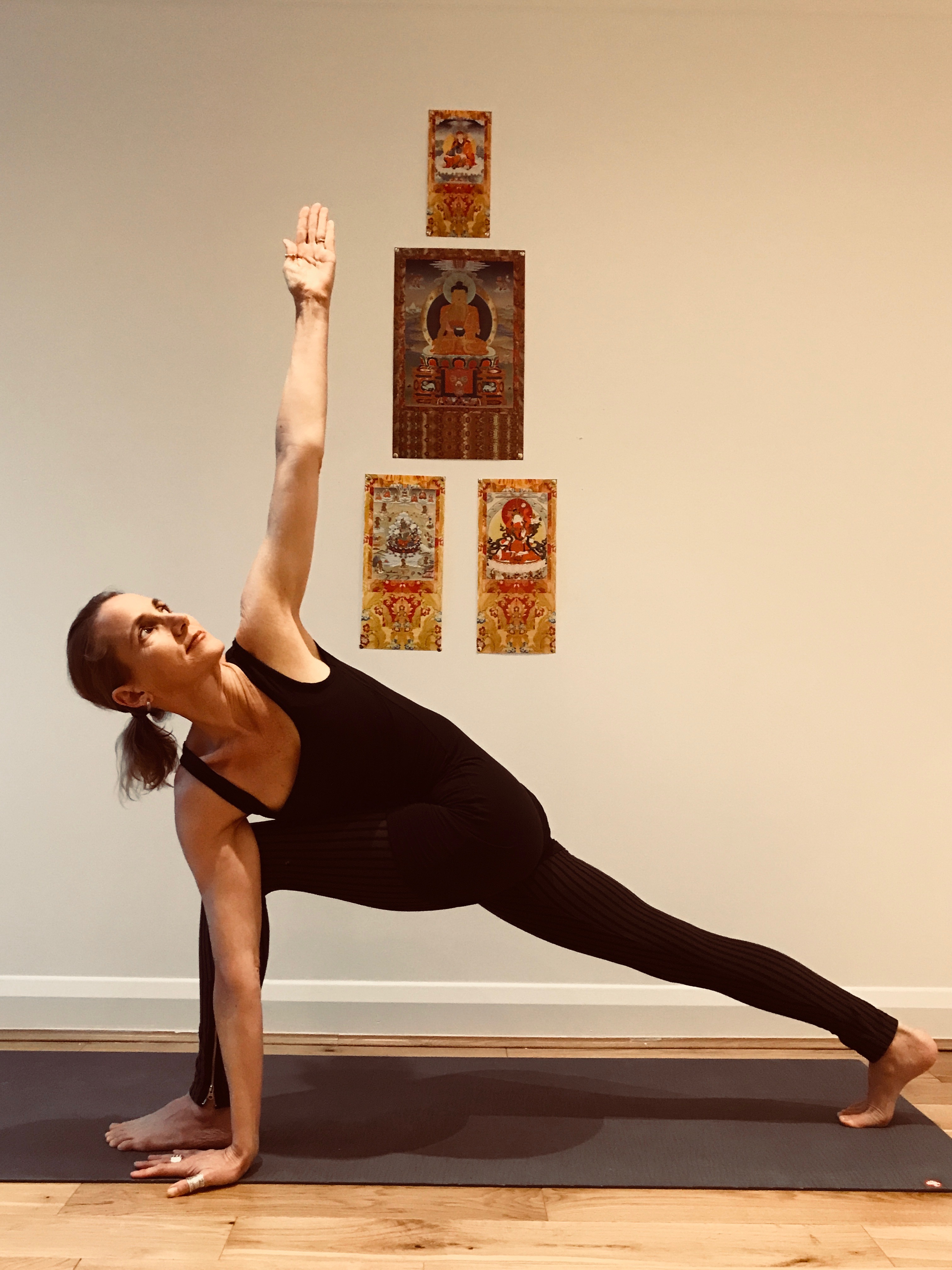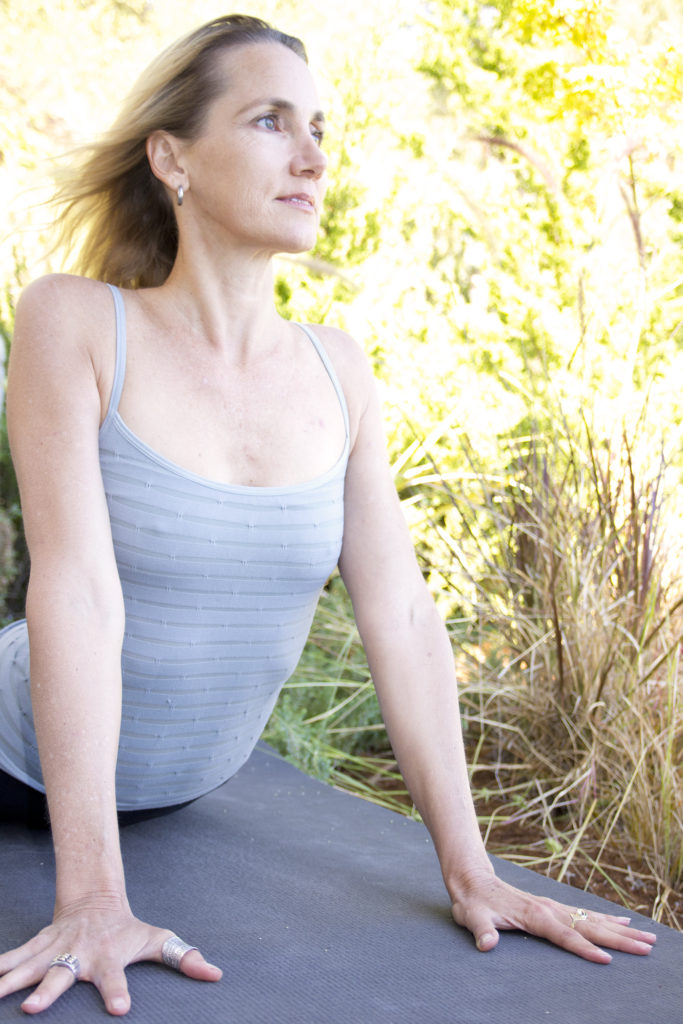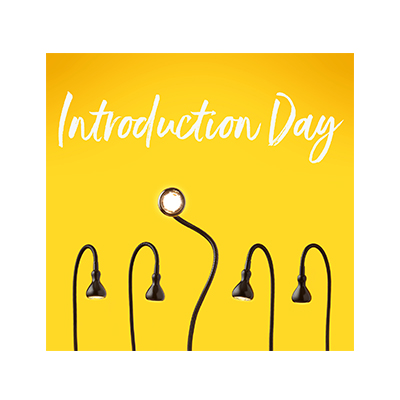Internationally renowned yoga teacher and author Sarah Powers talks about how the Process fits into a path of personal development, helping to unlock the body and still the mind.
When asked what brought you to the Process, you said that it was when you saw your husband Ty walking up the driveway after doing the course himself. What was it that made such an impact?
 I’d seen everything I thought I could see in Ty’s eyes, as we’d already been together 18 years at that point. He’d shown me his strength and tenderness, his rage and fears. But that day, as he walked up the drive to greet me, there was a depth of compassionate presence in his eyes that I felt could only come from deep healing at a very subtle level.
I’d seen everything I thought I could see in Ty’s eyes, as we’d already been together 18 years at that point. He’d shown me his strength and tenderness, his rage and fears. But that day, as he walked up the drive to greet me, there was a depth of compassionate presence in his eyes that I felt could only come from deep healing at a very subtle level.
Ty had had ‘good enough’ parenting and had also been raised by his grandparents, whom he adored, but his best friend had been to the Process years before and had continued to encourage him to go. More to put the subject to rest than to uncover any hidden childhood wounding, he finally succumbed.
I was pleased he decided to go, feeling his experience would positively affect us both and relieve me of the pressure to attend myself. At that time, I felt I had done enough therapeutic processing already.
Interestingly, although Ty uncovered subtle family dynamics, he also worked on the issue of society as a damaging parental-like influence. Having grown up in the 60s as an African American in LA, he was familiar with being treated as an ‘other’ in white society, even though his own family had many healthy interracial connections.
He found it a profound addition to help him unpack the underlying message that so many of us carry of inherent unworthiness. This is what I saw had shifted in his eyes as he hugged me after completing the Process, prompting me to simply say, ‘Do you have the Hoffman schedule?’ I knew whatever he’d unlocked, I wanted some of that.
With your extensive background in personal development, it’s hard to imagine what more you could have found at Hoffman – what was it that made it stand out?
 When I went to the Process, my daughter was about 7 years old. I‘d been through lots of personal therapy by then, including studying transpersonal psychology in graduate school, and was feeling fairly healthy in my relationship to myself, and those closest to me. But I still noticed something within me that would occasionally arise in the middle of the night, or in the early morning. A feeling or habitual thought had rooted in my psyche about not feeling entirely OK inside, even when everything was pretty OK on the outside.
When I went to the Process, my daughter was about 7 years old. I‘d been through lots of personal therapy by then, including studying transpersonal psychology in graduate school, and was feeling fairly healthy in my relationship to myself, and those closest to me. But I still noticed something within me that would occasionally arise in the middle of the night, or in the early morning. A feeling or habitual thought had rooted in my psyche about not feeling entirely OK inside, even when everything was pretty OK on the outside.
I had internalized a critical voice that at times left me feeling contemptuous of myself; prone to self-judgement, disappointment, and restlessness. I think all the psychological healing work I’d done beforehand helped ripen me for that week at Hoffman. I felt as if I finally got to the bottom of the lie of unworthiness, and saw it as a hollow habit with no substance except what I’d been feeding it.
Hoffman has been going over 50 years and personal growth and therapy has become much more common, yet I believe your students even get course credits if they’ve done the Process. Why do you think it’s still relevant?
I often tell people it’s not a magic fix, nor the only therapy they’ll need or ought to do, but the intensive nature of spending an uninterrupted 7 days on family-of-origin issues in such a loving and skilfully sequenced setting propels your healing forward tremendously – whatever level you’re at.
Do you feel that your background in yoga influenced how you experienced the Process and did it make a difference afterwards in how you were able to integrate it?
I’m not sure, but having a body-centered practice and inner orientation certainly seems to help allow feelings to live and move inside. After the Process, I found I could more swiftly disidentify from disturbing emotions when they surfaced, especially when holding long yoga poses. Since the Process, my yin style yoga practice has become a soft, safe place to understand and unpack habitual distorted beliefs I‘ve carried in my body and mind.
After the course I no longer needed to use my practice to run from, or sweat out, the uncomfortable emotional territory. I could turn towards it with compassion. This is something I‘ve continued to nuance and develop through my yogic and Buddhist practices, and love to offer as a gateway out of suffering for others.
Addiction is a common issue for many who come to the Process. You describe addiction as the act of looking for satisfaction in the wrong place, whether through compulsive behaviour or in co-dependent relationships. How does Hoffman help with that?
 I’m interested in bringing to light the habitual behaviour that we’ve developed in an attempt to get our needs met, but which actually cause us more suffering. In doing that we often find great learning. For example, my addiction to comfort in my body meant I sought out yoga teachings, which have greatly benefited me, just as my frustration with being so easily discontented sent me to therapy at a young age. Growing up I saw people around me addicted to alcohol, sugar, exercising, food, as well as to the ideal of poverty on the one hand, and to money, power, and success on the other.
I’m interested in bringing to light the habitual behaviour that we’ve developed in an attempt to get our needs met, but which actually cause us more suffering. In doing that we often find great learning. For example, my addiction to comfort in my body meant I sought out yoga teachings, which have greatly benefited me, just as my frustration with being so easily discontented sent me to therapy at a young age. Growing up I saw people around me addicted to alcohol, sugar, exercising, food, as well as to the ideal of poverty on the one hand, and to money, power, and success on the other.
These people influenced my choices in life, some of which are healthy, and others, not so much. The Hoffman Process does a beautiful job of healing entrenched harmful patterns by helping us see this as negative love: a way we emulate what we saw in those around us (even when that behaviour is distorted), in order to get the love we crave.
I so appreciated that, instead of viewing addictive behaviour as a disease, Hoffman focuses on helping us to identify the underlying unmet need that the actions stem from.
During the Process, my angry and sad parts were given room to breathe. They were met with compassion, allowing an authentic empathic wisdom within me to be further revealed and nurtured. The course also allowed me to see my parents as the children of their parents, opening the door to greater genuine compassion for their unconscious habits. I gained heartfelt insights into the ways they, like me, are often prisoners of their own conditioning. Although there are still difficulties with my parents at times, my relationship to them both was deeply healed after my week on the course, and the addictions that I and others are prone to are now held in a much more conscious and caring inner environment.
You mentioned an inner restlessness as something that you grappled with in the past and which is something many people identify with. Where do you see Hoffman or yoga having a role in allowing someone to quiet their mind and connect to a sense of peace and presence?
Whenever we attempt a contemplative activity, any unintegrated material within us percolates into consciousness and rattles our energy body, distracting and destabilising our best intentions of connecting to the present.
Work we do to heal past wounds naturally quiets the inner terrain, allowing deeper levels of awareness to be experienced. Hoffman is a major leap in this area. But patterns live not only in our hearts and minds. They’re patiently stored in the tissues of our body moment by reactive moment.
I find yoga exemplary in this area. The emphasis on re-inhabiting our body by consciously breathing into our depths, while honouring our limitations and exploring our somatic capacities, lifts and dissipates energetic heaviness from our system. Yoga is a great way to heal past trauma, while promoting healthy conscious embodiment at every stage, and every age.
Do you have any advice for anyone considering the Process?
I’d recommend that you bring yourself fully to the Process. Don’t hold anything back. If you surrender completely there’s no way for it not to touch and unlock something within that needs release…even if you don’t feel every exercise speaks to you.
The Process is a great place to meet and nurture all of yourself, without fear of condemnation. Allow all your parts to show up, even those aspects you consider shameful or hateful. The teachers are skilfully attuned to meet everyone in a clear non-judgemental way, helping these hidden parts to begin to heal. At the end of the week, you’ll leave feeling like you gave it your all.
And lastly, trust the integration of the Process to unfold naturally. It takes far longer than the one week you’re there.
Sarah and Ty are co-founders of the Insight Yoga Institute, and run international retreats and Yoga Alliance certified yoga training in the USA, UK and internationally. Insight Yoga publish a range of yoga resources including a book, DVDs and an online training course. For more information, click here.
More about the Hoffman/Yoga connection:
Hoffman Grad Ayala Gill:
‘I attended the Hoffman Process as part of a wider ongoing training with my teacher Sarah Powers, whose Insight Yoga Institute elegantly unites yoga, meditation and psychospiritual enquiry. A journey of both waking up and growing up in body, heart and mind.
I chose to attend the Process after several years of deep investigation into childhood trauma and patterning. I felt that this allowed me to appreciate the whole arc of the Hoffman journey, from recognition and expression, to integration and gratitude. On the other hand, for me, having an ongoing practice with Insight Yoga has ensured that the beautiful insights gained in the Process have been continually revisited and integrated over time.
The Hoffman Process for me was like a poetic furnace of change and possibility. Surrendering to the intensity that came up on all levels of heart and mind was made possible by the safety, elegance and professionalism of the journey we were guided through over the week. I had the opportunity to go deeper into areas of both expression (blisters on my hands, even with gloves!) and also insight (a real possibility of moving towards forgiveness). I am deeply grateful to the passionate teachers who held the space for me to dive deep, as I am to Sarah Powers, both for her encouragement to attend, and for the wisdom and love she continues to shine in my life!’
Ayala Gill, Yoga, Mindfulness & Meditation Teacher
www.ayalagill.com
Hoffman Grad Mirjam Wagner:
‘I am eternally grateful Sarah referred me to the Hoffman Process because it brought me into deeper areas of my personal healing process. Places I’d never have dared to go on my own.
I totally understand why Sarah considers the Process so important when we choose to work guiding others on their own healing path, whether that’s physical or emotional. Only when we experience the loving guidance from people such as the Hoffman Team, while exploring the roots of our individual suffering and limitations, can we overcome our own ego. And only then can we support others in their journey from darkness to the light, from a place of deep connection & compassion.’
Mirjam Wagner, Osteopath & Yoga Teacher
www.yogatherapymallorca.com






 Sign up to receive monthly newsletters from Hoffman
Sign up to receive monthly newsletters from Hoffman